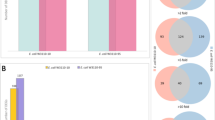Abstract
Information about genetic changes during the selection process could indicate mechanisms underlying the spread of resistance to anthelmintic drugs. For clarification of the role of the Mpi locus encoding mannose-phosphate isomerase enzyme in determining resistance, genotyping of Oesophagostomum dentatum strains was performed using an isoelectrofocusing technique. In levamisole- and pyrantel-selected strains the allele associated with resistance has probably been found. Significant values for genetic differentiation between treated and untreated strains of common origin were recorded by Fst indices (θ=0.078; P=0.0008). The specific genomic makeup of a flubendazole-resistant strain, which did not correlate with that of the remaining isolates, might be ascribed to a different action of the anthelmintic or different environmental conditions under which resistance against this drug arose. The absence of heterozygotes in male populations indicated an XX/X0 system of sex determination for the Mpi locus, thus providing a greater potential for the development of resistance. A possible involvement of alleles linked with mannose-phosphate isomerase in alterations of membrane receptors that can be associated with resistance against imidothiazole-based drugs is discussed.
Similar content being viewed by others
Author information
Authors and Affiliations
Additional information
Received: 24 September 1999 / Accepted: 24 November 1999
Rights and permissions
About this article
Cite this article
Šnábel, V., DeMeeŵs, T., Várady, M. et al. The sexually linked Mpi locus is presumably involved in imidothiazole resistance in Oesophagostomum dentatum parasites. Parasitol Res 86, 486–490 (2000). https://doi.org/10.1007/s004360050698
Issue Date:
DOI: https://doi.org/10.1007/s004360050698




